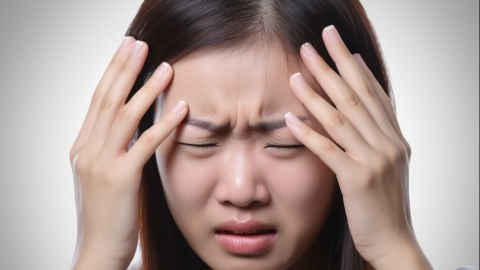Why do I experience a headache after taking a shower?
Generally, headache after bathing may be caused by vasodilation, steam inhalation, hypoglycemia, sinusitis, hypertension, and other factors. Symptomatic treatment through general care or medication may be needed. If symptoms persist, it is recommended to seek medical attention promptly and undergo appropriate treatment under a doctor's guidance. Detailed analysis is as follows:

1. Vasodilation
Contact with hot water can cause local vasodilation, especially in the head's blood vessels. This sudden expansion may increase blood flow to the head, causing a temporary sensation of head fullness or pain, possibly accompanied by mild dizziness or facial flushing. It is recommended to lower the water temperature and avoid excessively hot water. Gradually adapt to warm water showers to reduce abrupt vasodilation.
2. Steam Inhalation
When large amounts of steam are inhaled in the bathroom, it may irritate the respiratory tract, causing mild airway inflammatory responses, which may reflexively affect the head's nerves, causing a sensation of head fullness or pain, possibly accompanied by mild coughing or breathing discomfort. It is recommended to maintain good ventilation in the bathroom and reduce steam inhalation.
3. Hypoglycemia
Bathing on an empty stomach or prolonged bathing may excessively consume physical energy. When glycogen reserves are insufficient, hypoglycemia may occur, leading to symptoms of head fullness or pain, possibly accompanied by palpitations, sweating, and fatigue. It is recommended to promptly consume high-sugar foods such as juice, sugared water, or milk, and follow medical advice to use medications such as glucose sodium chloride injection, hydrocortisone tablets, or mannitol injection to alleviate symptoms.
4. Sinusitis
Sinusitis refers to inflammation of the nasal sinuses, primarily caused by bacterial, viral, or fungal infections. Patients already have inflamed nasal mucosa, and steam inhaled during bathing may further irritate the nasal mucosa, worsening sinusitis symptoms and causing head fullness or pain, possibly accompanied by nasal congestion, runny nose, and facial pressure. It is recommended to follow medical advice and use medications such as roxithromycin tablets, cephalexin dry suspension, and clindamycin hydrochloride tablets to alleviate symptoms.
5. Hypertension
Excessively hot water may cause vasodilation, leading to elevated blood pressure. Additionally, the enclosed bathroom environment may cause hypoxia, further exacerbating increased blood pressure, resulting in head fullness or pain, possibly accompanied by palpitations, chest tightness, and blurred vision. It is recommended to take antihypertensive medications under medical guidance, such as nifedipine tablets, hydrochlorothiazide tablets, enalapril maleate tablets, etc., to control blood pressure levels.
After bathing, it is recommended to lie down in a quiet, dimly lit room, relax all muscles, reduce auditory and visual stimulation, and allow the body and mind to recover and relieve the discomfort.




